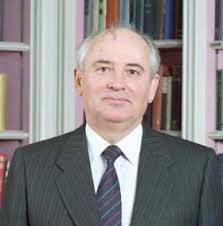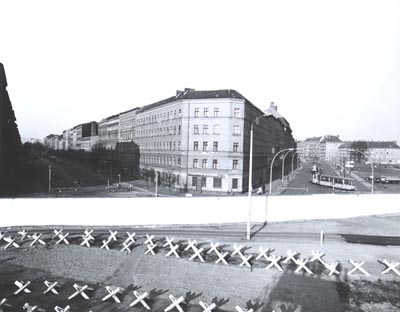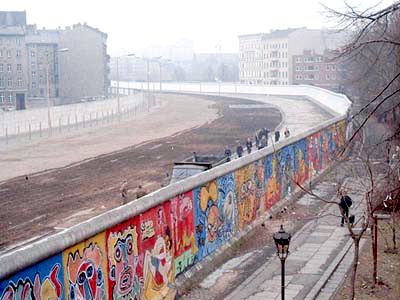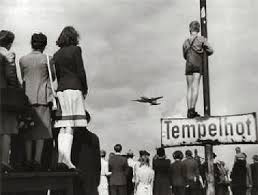
Mikhail Gorbachev was instrumental in the fall of the Berlin wall and the end of the cold war.

"The Anti Fascist Protection Barrier".

The Berlin wall was used as a canvas for many artists.

Consequences of Berlin Blockade
After the Second World War ended the victorious allied forces occupied and divided Germany, as a result of this initial separation Berlin was located deep inside the part of Germany controlled by the Soviet Union. As Berlin itself was to be split, western portions of the city were controlled by Us, UK and French troops while the Eastern sector was to be occupied by the Soviet Union.The wartime Allies’ relationships had turned more hostile since the end of the war but the uneasy alliance remained but the question of what would happen to Berlin remained, would western control hold or would the whole of Berlin be absorbed into Soviet occupied Eastern Germany?
The situation fast turned into a crisis on June 24th 1948 when the Soviets blocked all access to the Allied areas of Berlin by rail, road and water which meant all food and other consumable had to be airlifted in.
Breakup of The Allied Control Council of Germany
The USSR had decided to begin the blockade after they felt marginalised by the other members of the Allied Control Council of Germany namely the French, British and Americans after they had uncovered plans to create a new German State and introduce a new Deutschmark to Western areas. The Soviet Union viewed this plan as an attempt to wrest control of the city and an undermining of their authority in Germany, they responded by introducing their own currency, the Ostmark and by implementing the blockade.
This action started a standoff which led to the Western powers to start the Berlin airlift to ensure the Western Berlin sector was stocked with food and fuel and the US scrambled nuclear capable B29 Bombers to the UK in case there was a military conflict. Though both sides were on high alert Western diplomats sought a peaceful solution to the crisis, the Soviets were open to such a resolution but insisted the Allies withdrew the Deutchmark from West Berlin, a suggestion which was rejected.
West Berlin Airlifts
The position or West Berlin and its population was a precarious one as the standoff has political, financial and social consequences. In September 1948 the Socialist Unity Party of Germany who were backing the Soviet occupation marched on the Berlin city council forcing it to adjourn. In response 300,000 West Berliners congregated at the Reichstag to show their support for the Western powers and their opposition to Soviet control, these events convinced The US, UK and France to stay the course with the airlifts and the currency.
As the Western allies became more efficient at airlifting supplies into Berlin and increased the frequency of the drops to one a minute showing the Soviets that the operation could be sustained indefinitely. The allies were also successful with their counter blockade on Eastern Germany which weakened the Soviet position until it became untenable.
Formation of NATO
The Soviet Union lifted the blockade of West Berlin on May 11th 1949 but the ideological differences remained. Soon after the end of the blockade the Western Allies setup NATO, the North Atlantic Treaty Organisation. The state of West Germany was born soon after followed by East Germany.
The area became one of the hot spots of the Cold War, where the US and Soviet Union faced off and turned Berlin into the ground zero in the war between communism and capitalism.
